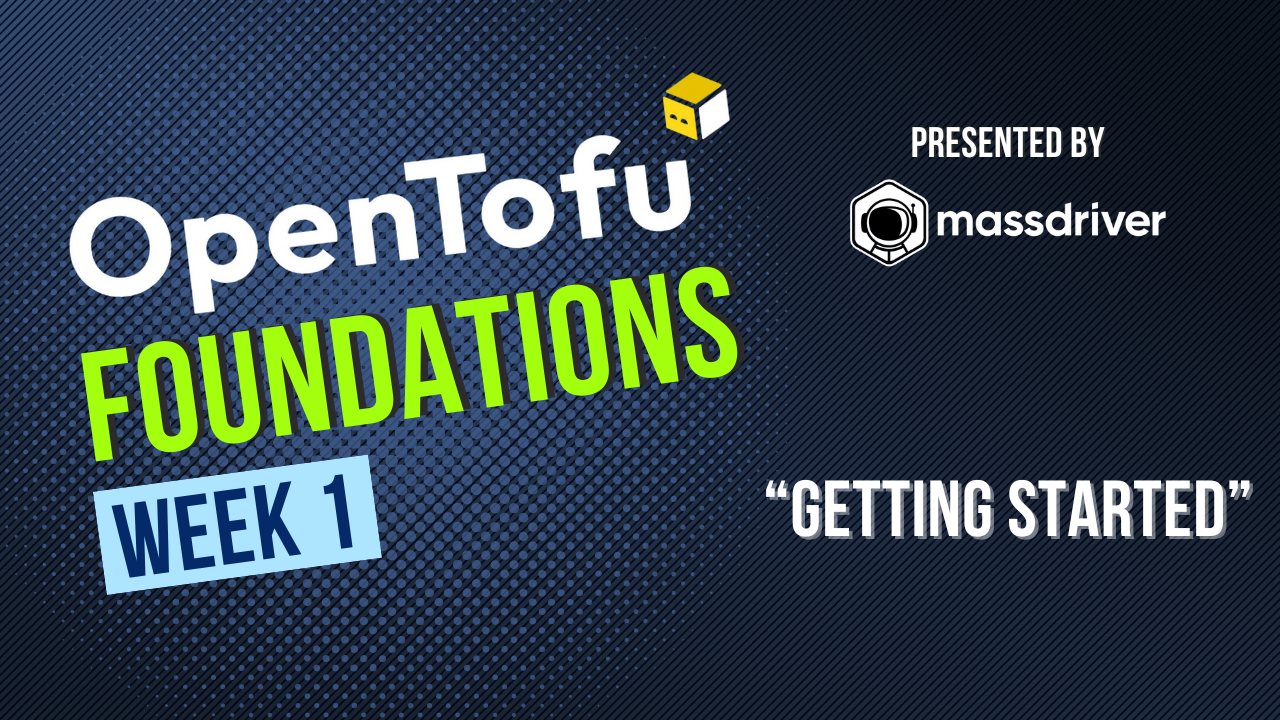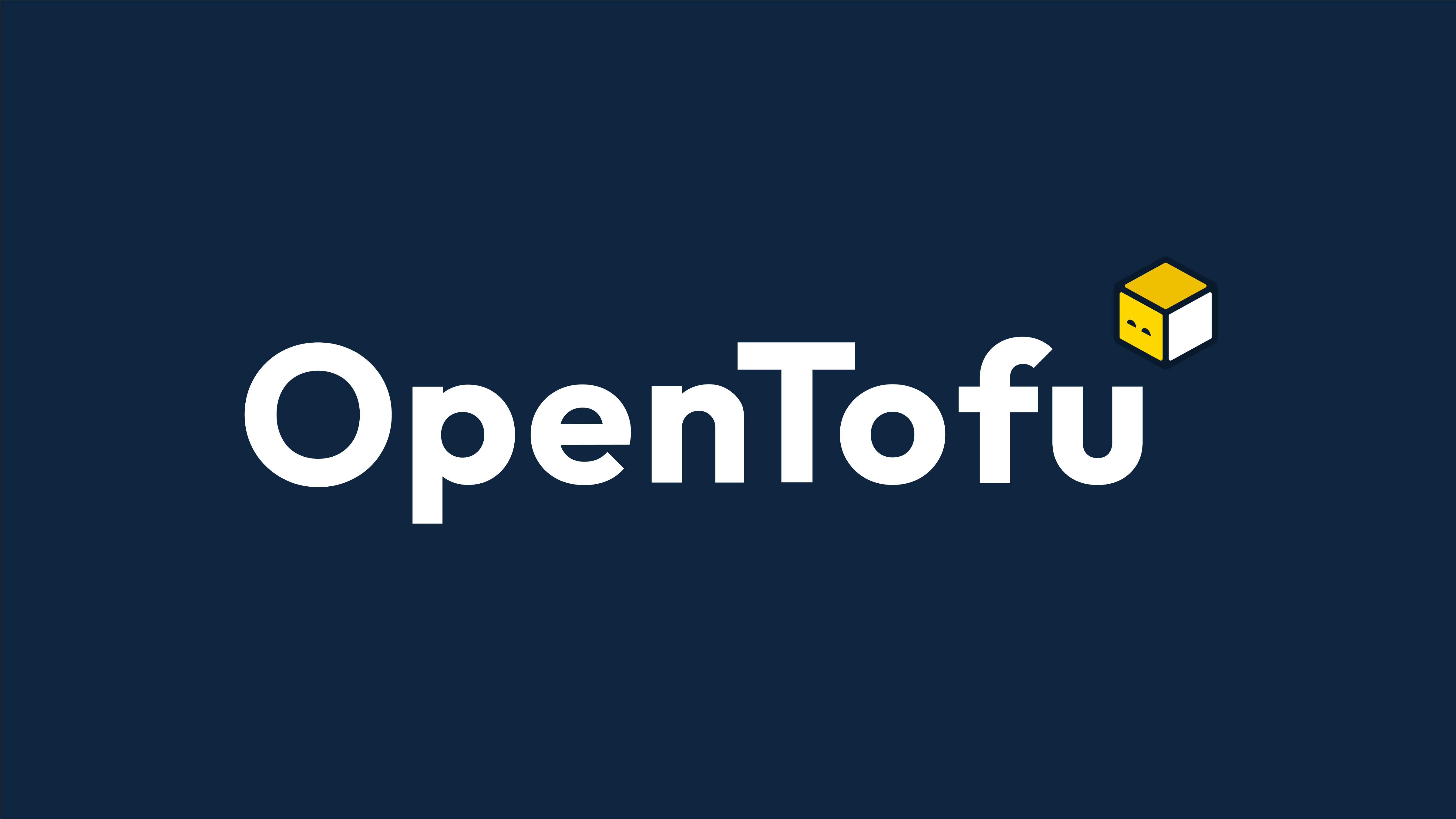Generating OpenTofu code from existing cloud resources with AI
ClickOps got you down? In this post we'll learn how to generate OpenTofu code using AI. Its not a silver bullet, but it'll get you further than many of the tools in the OSS space.

Update (Sept 18, 2024): Want to learn OpenTofu from the ground up? We're hosting a free 10-part hands-on instructor-led workshop on adopting infrastructure-as-code with OpenTofu. Seats are limited, sign up here.
If you want to follow along in this tutorial you can find the code repo here and original webinar recording.
What do OpenTofu, Terraform, Azure, JQ, bash, mods, and OpenAI have in common?
Not much besides they'll be all up in your shell if you want to generate IaC with any sort of speed.
The key to doing this quickly is having a good tagging (or at least naming) convention.
Naming conventions are difficult to apply retroactively because:
a) some resources can't be named
b) renaming stuff sometimes destroys it
Before doing any IaC, I come up with at least a basic tagging strategy and go apply it to resources. You can do a full fledged one or something temporary like "iac-gen-wip=yourname" to make it easy if you have multiple people on your team generating IaC.
My general go to:
- iac-gen-wip=YOUR_NAME_HERE
- iac-gen-env=ENVIRONMENT_HERE
This is enough to deliniate environments and team members if multiple folks are reverse Terraforming. It's easy to remove any temporary tagging stragies once the infra is captured in IaC.
You'll need a few CLI tools to follow along:
Tutorial
A note before we get started, you'll see that I have two directories module/staging and module/prod. This is not the old terraform anti-pattern of having a root module per environment. When I'm generating IaC I work with two 'environments' individually so I can see the difference in parity/resources between environments, I'll then back this out to a single module with multiple workstations.
Reset the tutorial:
export IAC_GEN_ENV_TAG="iac-gen-env=ENVIRONMENT_HERE"
export IAC_GEN_WHO_TAG="iac-gen-wip=YOUR_NAME_HERE"
# For webinar:
# export IAG_GEN_ENV_TAG=md-target=staging
# export IAC_GEN_WHO_TAG=md-project=geniac
make
Each of the clouds have CLI commands for getting resources by tags. Unfortunately Azure's is OR-based, so if you have multiple tags, it'll grab any resource w/ any of the tags.
az resource list --tag $IAG_GEN_ENV_TAG --tag $IAG_GEN_WHO_TAG | jq '.[].id'
I use this script to AND tags w/ jq and get the resource identifiers:
./hack/list_resource_by_tags.sh azure $IAG_GEN_ENV_TAG $IAG_GEN_WHO_TAG
You can use it for AWS as well:
./hack/list_resource_by_tags.sh aws $IAG_GEN_ENV_TAG $IAG_GEN_WHO_TAG
If you didn't do any tagging, but have maintained a good naming convention, you might have luck grepping for it, although this doesn't work well in AWS where you don't get to truly 'name' resources like VPCs and subnets.
az resource list | jq -r .[].id | grep MY_NAMING_CONVENTION_HERE
Dump the list of IDs to file. The OpenTofu / Terraform import block works on cloud IDs.
./hack/list_resource_by_tags.sh azure "$IAG_GEN_ENV_TAG" "$IAG_GEN_WHO_TAG" > resources.json
Take a look at the identifiers to make sure you didn't pick up any other resources accidentally.
You may not get back all of the resources you tagged.
code resources.json
The script uses the az resource API which doesnt return all resource types like subnets, groups, or disks.
You may need to hit a few more Azure APIs to find those resources.
Example to get subnets:
az network vnet subnet list --resource-group geniac-staging-network-r6cm --vnet-name geniac-staging-network-r6cm | jq -r .[].id >> /tmp/azimport-ids.txt;
Now we'll start using mods to make calls to AI to do the 'hard' work for us. I've had the most success with ChatGPT-4o and Anthropic Claude 3.
You can tune your mods configurationg by running mods --settings. Make sure to set your word wrap to a fairly high number, 250 characters or more for Azure, the resource IDs are very long URL paths.
cat prompts/generate resources.json | mods -r
You can recall previous mods sessions with:
mods -s ID_HERE -r
Add the code to module/staging/import.tf and then run:
cd module/staging
tofu init -upgrade
tofu plan -generate-config-out=generated.tf
You may have gotten some terraform errors on generation. The AI's particularly w/ Azure don't always get the Azure URLs right. It can mess up casing and Azure is very casing sensitive.
If you got errors, try this. The Terraform errors are usually enough to get a good fix.
rm generated.tf
tofu plan -generate-config-out=generated.tf 2> errors.txt
cat ../../prompts/refactor/fix errors.txt | mods -r
# Copy the import statements
tofu plan -generate-config-out=generated.tf
Look at the generated code:
cat generated.tf
Run a plan to see how it looks, we should see that OpenTofu / Terraform want to import a few resources.
tofu plan
This may well error, some providers can generate invalid code.
If you got errors:
tofu plan 2> errors.txt
cat ../../prompts/refactor/fix errors.txt generated.tf | mods -r
The generate prompt should have output import commands for each of the resources. When working with production resources, I'll generally import one at a time using the command once I am sure I want my local state to be the 'owner' of the resource.
You can run each of the commands or simply run: (remember that you can recall and list previous mods sessions!)
tofu apply
After importing, run plan again and we should see "No changes"
tofu plan
Woohoo!
So what we've got now is a single Terraform source file and state. Thats good, but we've got work to do.
The generated code has:
- no variables
- no for_each for repeated resource
- may have some minor issues
- no referencing between resources
I don't have a good for_each example here, so lets just put a naive one at the bottom of generated.tf
cat generated.tf /assets/for_each-files-example.tf > /tmp/azimport.tf; cp /tmp/azimport.tf generated.tf
I'm going to get this into state, and we can just "make believe" that this is a set of subnets or db instances in a cluster. Some resources that we would want to have a variable number of per environment.
tofu init -upgrade
tofu apply
Ok, you should have two files in your state and on disk now.
Now how this for_each step works is, if you look at the generate prompt, I request that any resources of the same type have their Terraform resource name set to main-0, main-1, etc. This for_each takes advantage of that and backs resources out to a local (which I back out to variables during the workspaces step).
I've seen this occassionally back out single resources when running on the more naive AI models.
cat ../../prompts/refactor/for_each generated.tf | mods -r
Update your generated.tf with the output of the for_each step and run:
tofu plan
Running tofu plan will try to destroy two resources because the state file is now wrong! State mv commands should have been generated by the model.
Lets run those:
tofu state mv ...
Running plan again should result in "No changes."
tofu plan
Now lets back out a few common variables. We'll end up doing a second variable when we generalize the 'staging' and 'prod' modules into a single module.
cat ../../prompts/refactor/variables_common generated.tf | mods -r
Update your generated.tf and run plan again, you should see "No changes":
tofu plan
At this point you should have about 60-70% of the work done for reverse Terraforming / Tofuing cloud resources into IaC.
From here, I'll replicate these tasks above in the "prod" module, obtaining the import statements for production and beginning the process of diffing out a common module that can be used across multiple workspaces.
I typically leave resource referencing and variable integration until after the production environment has a solid baseline. This approach allows me to identify disparities between environments and abstract them into a unified module interface.
Join Us for Part Two of the Webinar!
Are you interested in learning more? Sign up for part two of our webinar!
We'll take the staging and production modules we've created and consolidate them into a single, cohesive module with workspaces. Don't miss this opportunity to streamline your infrastructure as code practices.
.png)



